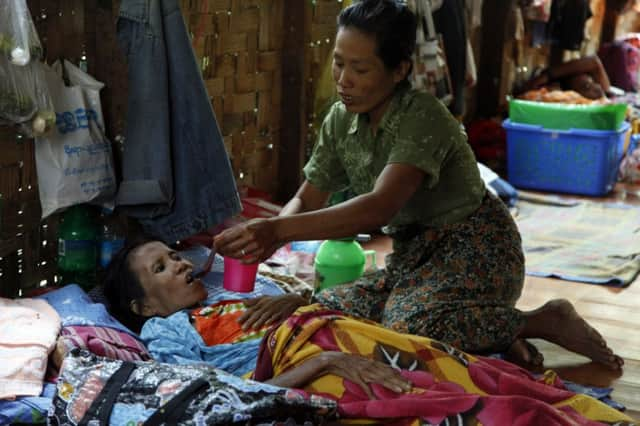Burma/Myanmar: Country backtracks on MSF doctors


But the Nobel Peace Prize-winning group will not be allowed to resume work in Rakhine, a state plagued by bloody bouts of sectarian violence. MSF has expressed grave concern at the weekend about the fate of tens of thousands of vulnerable people in that state.
The group has been providing care there to both ethnic Rakhine Buddhists and Rohingya Muslims, a mostly stateless minority who live in apartheid-like conditions and who otherwise have little access to health care.
Advertisement
Hide AdAdvertisement
Hide AdMSF is Burma’s main provider of HIV drugs, treating 30,000 people, and it described the impact as devastating.
The government recently hit out at the group over its handling of patients following an attack in the remote northern part of the state last month.
And that culminated on Friday, when the country’s presidential spokesman Ye Htut told the Myanmar Freedom newspaper that the group’s contract in Rakhine state would not be extended because it hired “Bengalis” – the term the government uses for Rohingya – and lacked transparency in its work. He also hit out at the group over its handling of patients after an attack in the remote northern part of the state last month. The government has denied allegations that a Buddhist mob rampaged through a village, killing women and children.
MSF said it treated 22 injured and traumatised Rohingya. The United Nations said more than 40 Rohingya were killed. The government said only one Buddhist policeman died.
Mr Ye said the group’s “presence has more negative impact than benefit” and that its contract was not renewed because the group’s work “could heighten tension and jeopardise peace and tranquillity in the region”. Now, however, it appears the government has had a change of heart.
MSF said in a statement that it had now been allowed to resume work in Kashin and Shan states, as well as the Yangon region.
“While MSF is encouraged by this and will resume these activities for now, MSF remains extremely concerned about the fate of tens of thousands of vulnerable people in Rakhine state who currently face a humanitarian medical crisis,” it said.
“All MSF services are provided based on medical need only, regardless of ethnicity, religion or any other factor.”
Advertisement
Hide AdAdvertisement
Hide AdIt had to close clinics serving 30,000 HIV/Aids patients, and more than 3,000 people with tuberculosis were not able to get vital medicine, it had said.
Reports of incidents in Rakhine are difficult to verify independently because large parts are off limits to journalists.